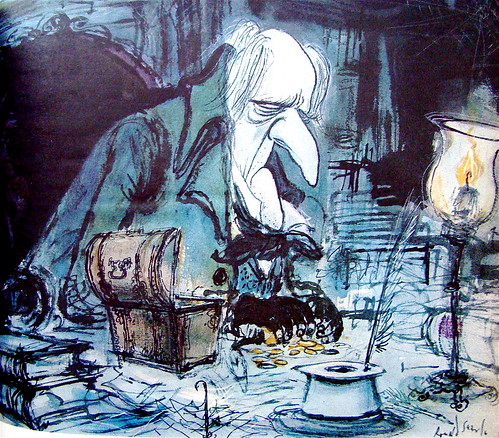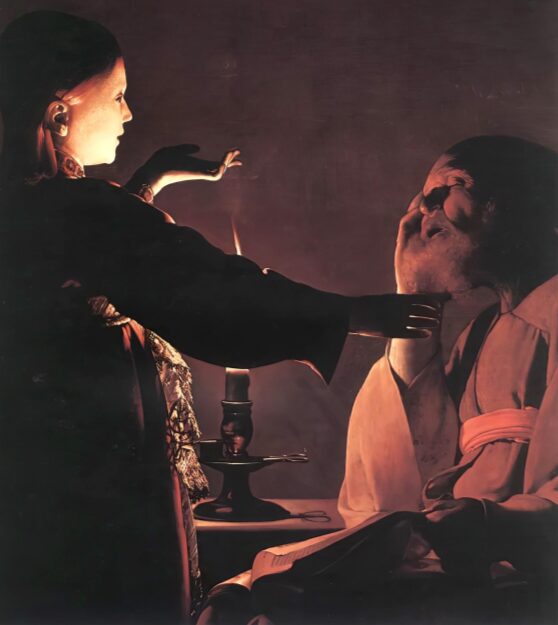Humility Before God
When I think about Humility, this verse always comes to my mind, “To act justly, love mercy and to walk humbly with your God.” – Micah 6:8

They’re the words of the prophet Micah. When I was thinking about the story of Christmas, I thought, where was humility involved? I decided to start talking about Charles Dicken’s character, Ebenezer Scrooge. Because I think Ebenezer needed to learn a bit about humility. He was one who thought that the be all for him was his money. He put all his faith in his ability to live the way he wanted to live, albeit tightly so that he had more money. Money was going to be his salvation. Think about that.
I think there are some other people who look at money as their salvation. Certainly it helps, but money does not save us. And that was the lesson he learned, that although he could control many things, he could not control in life.
Actually, I think being humble is one of those pieces of our faith journey that is very difficult for us.
Because if we’re honest we’re a bit like Ebenezer and we want to do our own lives. We love being independent. We don’t want to have to rely on anyone. We want to do it our way. We have our own agendas, time frames, and lists to be checked. It’s Christmas and I found myself obsessing about the food needing to be made and the gifts needing to be wrapped. It’s part of the season and our culture certainly encourages that feeling, but none of that is about God.

God is asking for a very different reaction from us. I often use the 23rd Psalm in funerals to remind us that our God is the one who wants to run our lives. Who will take us to those gentle streams and those, those fields, but will also sit us down at a table with our enemies. It was not meant to be an easy life, but God is looking for our attention.
As I was thinking about this, I thought about the second and third steps of the 12-step program of AA (Alcoholics Anonymous), which, Bill Wilson and Dr. Bob Smith, created not as a religious organization, but they recognize that part of what we have to do is know that we are not the be all and end all that we think we are. It is not all about us, and there is a higher power to whom we answer. We call that Jesus Christ, God, or the Holy Spirit. Other people might just say the divine, the creator, but there’s someone who is organizing the world and trying to influence the world. It is more than any of us. We have to look at that in our lives and we have to make the decision.
It’s a choice every day. Every moment of every day to stop focusing on ourselves and turn our attention to what God would want for us, what Christ wants for our lives.
What is Christ calling us to do? The wording I’ve been using is, what’s the next most loving thing to do? Because I think that’s what Jesus calls us to. What is the loving decision, the loving choice in each of the moments?
Today we are looking at the character of Joseph.
Our scripture today is Matthew 1:18-25 and it’s Matthew’s version of the Christmas story. Remember, Matthew had a very definite goal. Matthew wants to make sure that we know that Jesus is Jewish and is in the line of David.
When you start Matthew 1, the first 17 verses is all of his genealogy, which goes all the way back to Genesis, but connects Jesus to David. Interestingly, through Joseph, but connects the dots for us and then gives us this image of this earthly father. Stepfather is the language we would use today, who will come into Jesus’s life and guide him in a loving way.

It wasn’t the decision he had to make. Divorce was an option. We think of divorce as after people are married and that may not be a good translation either because they weren’t married. She was promised to him. There was a contract. Because that’s how marriage worked at that time. So, he could have said this pregnancy makes it null and void and that would be our language of a contract, right? The contract’s null and void. I don’t need to marry her, I can break this contract and walk away. I don’t need to be part of this.
But had he done that, he would have left Mary in a very desperate position, because at that time you needed to have a male to have any kind of power or money. She would have been destitute and very likely she could have been stoned because they would have thought that she had an affair with a married man, so it could have cost her her life.
But that wasn’t the decision he made. He made the decision for love. He chose life instead of death. And that’s at the heart of this story. I think that God wants us to choose love and to choose life.
Unfortunately, I have to name that this feels very political right now. So, I also need to say that as I affirm choosing love and choosing life, that is not necessarily at someone else’s expense.
The abortion conversation has become politicized and it’s a health decision and they are all individual cases. We don’t know what is going on in the lives of people, but we can still advocate for love and for life. I think we can hold both of those pieces because advocating for life means you advocate for the entire life of the child. Not just it’s birth.
So as we approach the end of the year, I want you to consider what challenges you met this year with God’s strength. How did God help you get through this year?
Where did God help you adapt, pivot, or show resilience as you may have met some struggle in your life? What small or big milestone can you honor without ranking or judging? Where did you act with love? Where did you show humility, instead of insisting that it be your way?
Those are big questions for us to sit with. So, I hope that between now and the end of the year, you take some time to consider that. It really does come down to that old Deuteronomy, where Moses looks at the people and he says, “life is laid out before you choose life or choose death.”
The decision is yours. We can’t avoid death. But we can avoid some of the heartache, struggle and the pain. Because we cause a lot of our own issues. We can avoid that by choosing love, choosing humility, and choosing life.